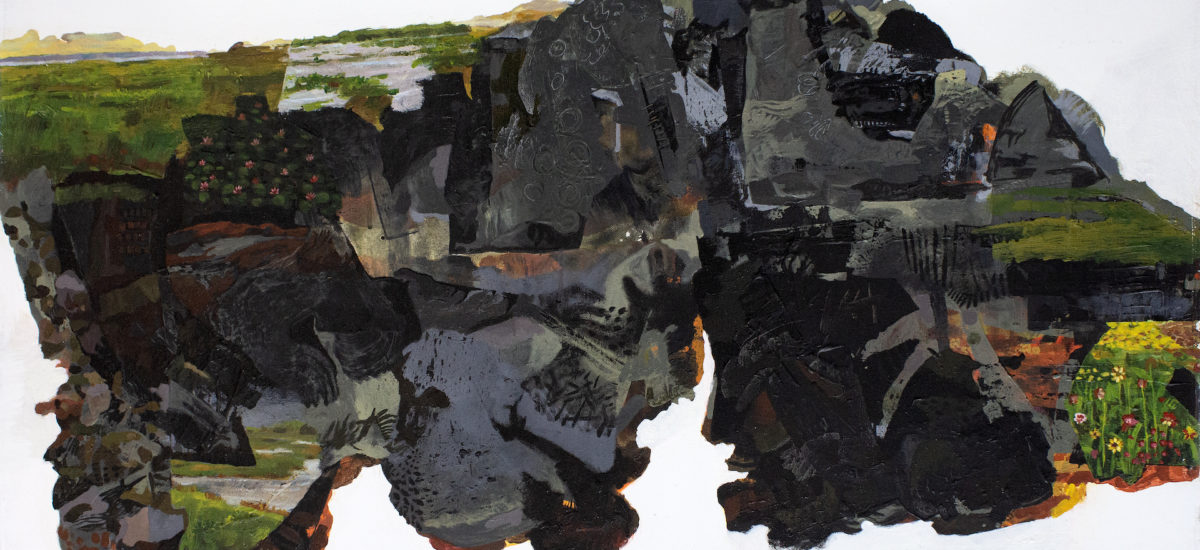Photo courtesy Suntharam Anojan
In his new collection of artwork, Suntharam Anojan depicts a visual account of the impact of the 30 year war that altered the topographies of Northern and Eastern Sri Lanka.
Through the series Anojan reflects on the erasure of memories and loss of livelihood and homes in the aftermath of the civil war. By taking the viewer through landscapes where verdant paddy fields, forests and river bodies are intercepted by raging fire and smoke and human settlements have been flattened into rubble, the series attempts to uncover the layers of change that the region has gone through.
In the collection for Colomboscope 2022, Anojan’s artworks portrayed the browns, ochres and greens in the landscape of the Vanni where he lives. He exposed war atrocities through what the ground, humans and other living species have witnessed including burnt forests, remnants of explosives and flattened homes. Anojan produced a 20 foot long canvas that undulated and spread across the space with vignettes of mass destruction that marked the landscape of his childhood. The distortion and mobile contours represented the feel of living without a permanent residence for years, moving from shelter to shelter amid dangerous terrains.
Anojan was born in Mullaitivu in 1991 and since he was ten years old, he lived away from family for his studies. “I thought about the war affected landscape, people, animals and even plants. I visited Mullivaikkal where I could see how the landscape was distorted by violence and war. I felt the trauma on it and on myself too. It felt like a disabled land and I, who was from that land, was also disabled. From this experience I started to paint on the concept of disability and being disabled. Disability is a physical or mental condition that means you cannot use a part of your body completely or easily or you cannot learn easily,” he told Groundviews in an interview last year.
Anojan answers questions from Groundviews about his new collection.
What is different about this exhibition and the one for Colomboscope last year?
My work are based on Eelam war because I was grew up in the background of war. My life is inseparable from wounds, death and trauma. My work exhibited at Colomboscope depicted the suffering of the people who got trapped on the war front. I displayed my work on the ceiling of the gallery, which symbolizes people who looked up in the sky where bombers and surveillance planes were seen constantly. I wanted to recollect in the traumatic memories of my people who looked at the sky while fleeing from place to place. My ongoing exhibition entitled “I am from Vanni” is a body of art work that speaks about the consequences of the war; how the war has totally changed the landscape of my area and how the cultural and social values have been destroyed. In my previous exhibition I focused on the traumatic life we experienced in our village. In my current work, I focus on the cultural andsocial values that have been discarded in different layers. I try to unearthed them with colours, lines and textures. My art work focuses on layers where our assets and values have been abandoned.
What are you hoping to portray through your images?
I try to bring out how innocent and ordinary people have been traumatized and victimized.
Do you hope that people in the south will be able to relate to the suffering of people in the north through your images?
Yes! I am creating images of truth, which is the first victim of war. There is no reconciliation without recognizing the truth.
Why is it important to remember the effects of war?
It is a process of healing. I strongly believe that I must witness the truth, which has become a victim of the war.
Is your art a way for you to heal from the effects of the war?
It helps me to come out of trauma. It helps me to translate my memories.

